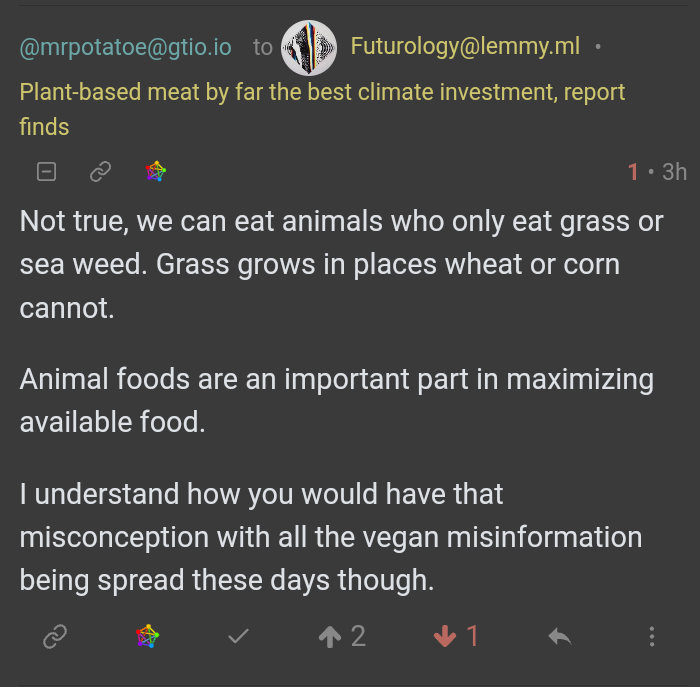Vegan
2966 readers
1 users here now
An online space for the vegans of Lemmy.
Rules and miscellaneous:
- We take for granted that if you engage in this community, you understand that veganism is about the animals. You either are vegan for the animals, or you are not (this is not to say that discussions about climate/environment/health are not allowed, of course)
- No omni/carnist apologists. This is not a place where to ask to be hand-holded into veganims. Omnis coddling/backpatting is not tolerated, nor are /r/DebateAVegan-like threads
- Use content warnings and NSFW tags for triggering content
- Circlejerking belongs to /c/vegancirclejerk
- All posts should abide by Lemmy's Code of Conduct
founded 6 years ago
MODERATORS
176
177
178
179
180
6
Outrage as Biden Admin Refuses to Shield Right Whales From Lethal Vessel Strikes
(www.commondreams.org)
181
182
183
184
185
186
2
'Shameful and Heartbreaking': Largest Wolf Cull in Modern History Underway in Sweden
(www.commondreams.org)
187
188
189
190
191
192
193
10
Lidl’s chicken scandal: a glimpse of the state of animal welfare in the EU
(www.eurogroupforanimals.org)
194
195
196
197
198
199
200
